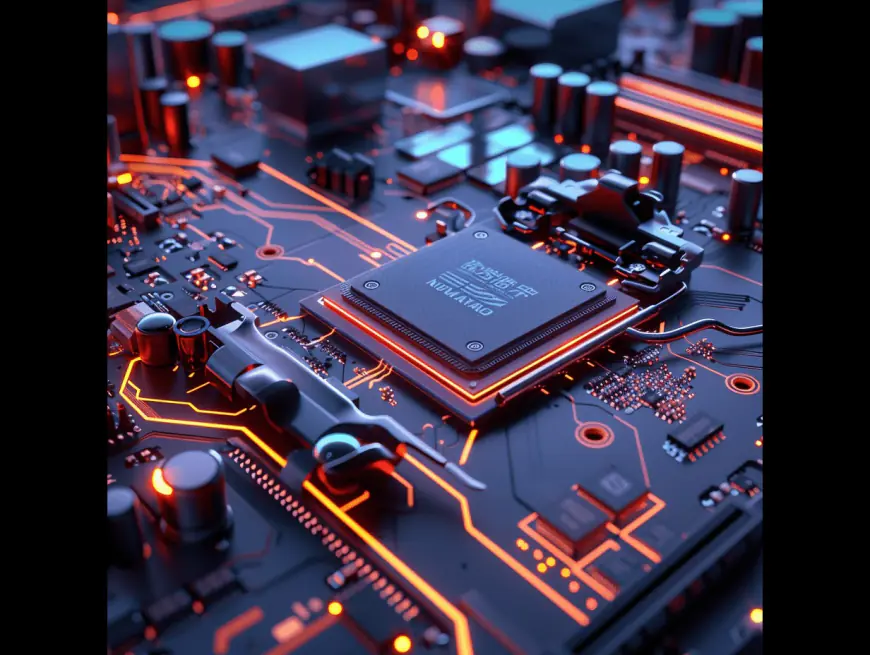AMD Introduces LM Studio for Local AI Model Deployment
To democratize access to advanced AI technologies, AMD has unveiled LM Studio, a versatile tool enabling users to download and deploy large-language models (LLMs) locally. This move counters the prevailing trend where AI services predominantly rely on powerful Nvidia hardware and necessitate an internet connection. AMD’s LM Studio aims to empower users with seamless access […]

To democratize access to advanced AI technologies, AMD has unveiled LM Studio, a versatile tool enabling users to download and deploy large-language models (LLMs) locally. This move counters the prevailing trend where AI services predominantly rely on powerful Nvidia hardware and necessitate an internet connection. AMD’s LM Studio aims to empower users with seamless access to AI assistants without the constraints of complex setups or extensive programming knowledge.
Easy deployment and versatility
LM Studio simplifies accessing AI assistants, catering to a wide range of users, from productivity enthusiasts to creative thinkers. With detailed instructions for various hardware configurations and operating systems, including Linux, Windows, and macOS, users can effortlessly set up LM Studio on their systems. The tool is designed to run on AMD Ryzen processors, leveraging native AVX2 instructions for optimal performance.
AMD’s commitment to accessibility extends to its GPU offerings, with the Radeon RX 7000 series supported through the ROCm technical preview of LM Studio. This open-source software stack enhances performance and efficiency for LLMs and other AI workloads on AMD GPUs. Users can leverage AMD’s hardware prowess to harness the full potential of AI assistants without relying solely on CPU computational power.
Seamless integration and performance enhancement
LM Studio offers a seamless integration experience, allowing users to discover, download, and run local LLMs effortlessly. The tool recommends popular models such as Mistral 7b and LLAMA v2 7b, ensuring users can access cutting-edge AI capabilities. Furthermore, LM Studio provides guidance on selecting the right quantization model, optimizing performance for Ryzen AI chips, and enabling GPU offload for Radeon GPU owners.
AMD’s LM Studio represents a significant step towards closing the gap with Nvidia’s Chat with RTX solution. While Nvidia’s proprietary application is exclusive to GeForce RTX 30 or 40 GPUs, LM Studio offers a more agnostic approach, supporting both AMD and Nvidia GPUs and generic PC processors equipped with AVX2 instructions. This approach ensures broader accessibility to AI technologies, irrespective of hardware preferences or constraints.
Empowering users with local AI solutions
With the introduction of LM Studio, AMD aims to empower users with local AI solutions, enabling them to harness the power of advanced language models without dependency on external services or internet connectivity. By providing a user-friendly interface and comprehensive support for diverse hardware configurations, AMD is poised to revolutionize the AI landscape, making cutting-edge technologies more accessible and inclusive.
What's Your Reaction?









































































































